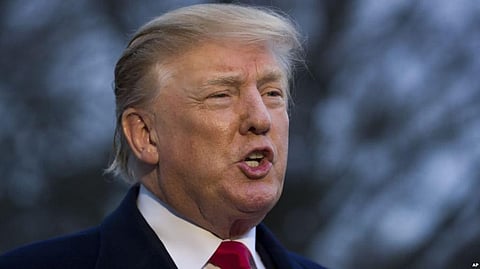FILE – Republican presidential nominee Donald Trump gives a thumbs up as his campaign manager Paul Manafort looks on during Trump's walk through at the Republican National Convention in Cleveland, July 21, 2016. VOA
The special counsel interpreted "coordination" fairly broadly to include both tacit and express agreements.But he found no evidence that members of the Trump campaign accepted offers of help from Russian operatives. "There was really an affirmative 'No'" said Eric Jaso, a former associate special counsel for the Whitewater affair during former President Bill Clinton's administration."If they'd gone along and said yes, that would have fallen under the tacit agreement category."
Mueller punts obstruction of justice question
Mueller's decision to punt the question of obstruction of justice struck many legal experts as unusual.
The Special Counsel took up the question after Trump fired FBI Director James Comey over the Russia investigation and after Comey claimed that Trump had asked him to stop investigating his former national security advisor, Michael Flynn.
But Mueller drew no conclusion about whether Trump's actions during the investigation amounted to obstruction of justice, according to the Barr summary.
"Instead, for each one of the relevant actions investigated, the report sets out evidence on both sides of the question and leaves unresolved what the Special Counsel views as 'difficult issues' of" whether Trump obstructed justice, Barr wrote.
With Mueller leaving the matter unresolved, it was left to the attorney general to make a determination. Barr wrote that after consulting with Justice Department officials, he and Rosenstein concluded that there was not enough evidence that Trump had committed obstruction of justice. The determination, he added, was made irrespective of a long-standing Justice Department guidance that a sitting president can't be indicted.


